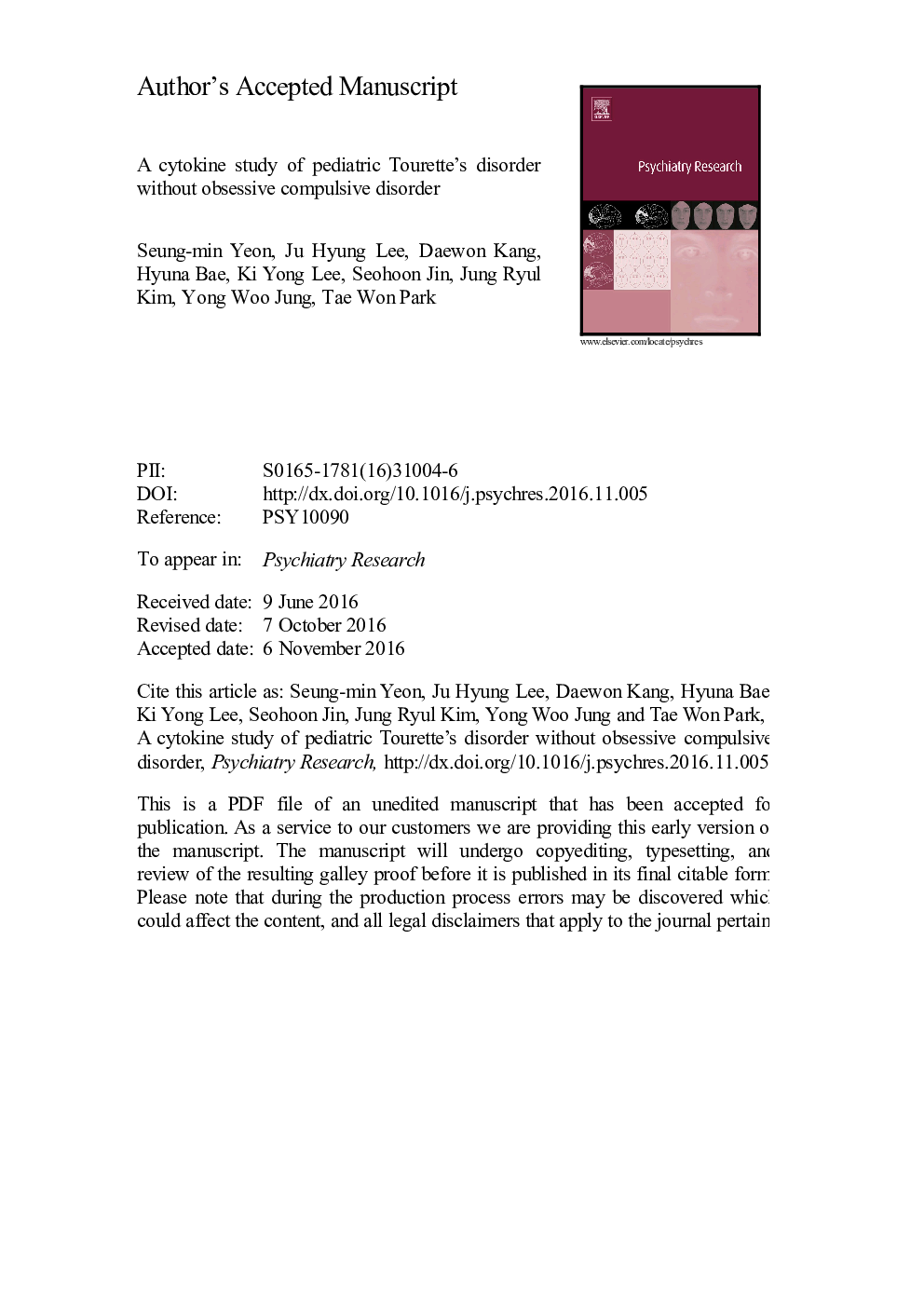| Article ID | Journal | Published Year | Pages | File Type |
|---|---|---|---|---|
| 4933646 | Psychiatry Research | 2017 | 24 Pages |
Abstract
It has been suggested that post-infectious inflammation in central nervous system is a cause of tic disorder including Tourette's disorder (TD). Since pro-inflammatory cytokines are important mediators inducing inflammation, the cytokine levels are regarded as one of the important indicators of inflammation. Several studies have investigated the relationship of autoimmunity and the pathogenesis of TD by measuring the inflammatory cytokine levels of blood. However, when using human samples, the experimental results can be affected by the factors like size of sample, comorbidity, medication that patients take and the severity of the diseases. Thus, it is important to exclude the possibility that comorbidity and medication affects the level of inflammatory cytokines in the serum of TD patients. In our experiment, we recruited 29 patients without obsessive compulsive disorder (OCD) comorbidity and the majority of these patients did not take medication. The six pro-inflammatory cytokine levels of blood between patient and healthy groups were compared, considering the factors above, to determine more accurate results. Of the cytokines we investigated, the interleukin 12 p70 (IL-12p70) and tumor necrosis factor α (TNFα) levels increased in patient group compared to healthy controls and the patient group which have anti-streptolysin O (ASO) score under the 200 or YTGSS score from 10 to 19 also showed higher IL-12p70 or TNFα levels. In addition, the patients who did not take medication showed higher TNFα levels compared to healthy controls. In conclusion, we suggest that inflammatory pathways that involve IL-12p70 or TNFα are important to the pathogenesis of TD.
Related Topics
Life Sciences
Neuroscience
Biological Psychiatry
Authors
Seung-min Yeon, Ju Hyung Lee, Daewon Kang, Hyuna Bae, Ki Yong Lee, Seohoon Jin, Jung Ryul Kim, Yong Woo Jung, Tae Won Park,
